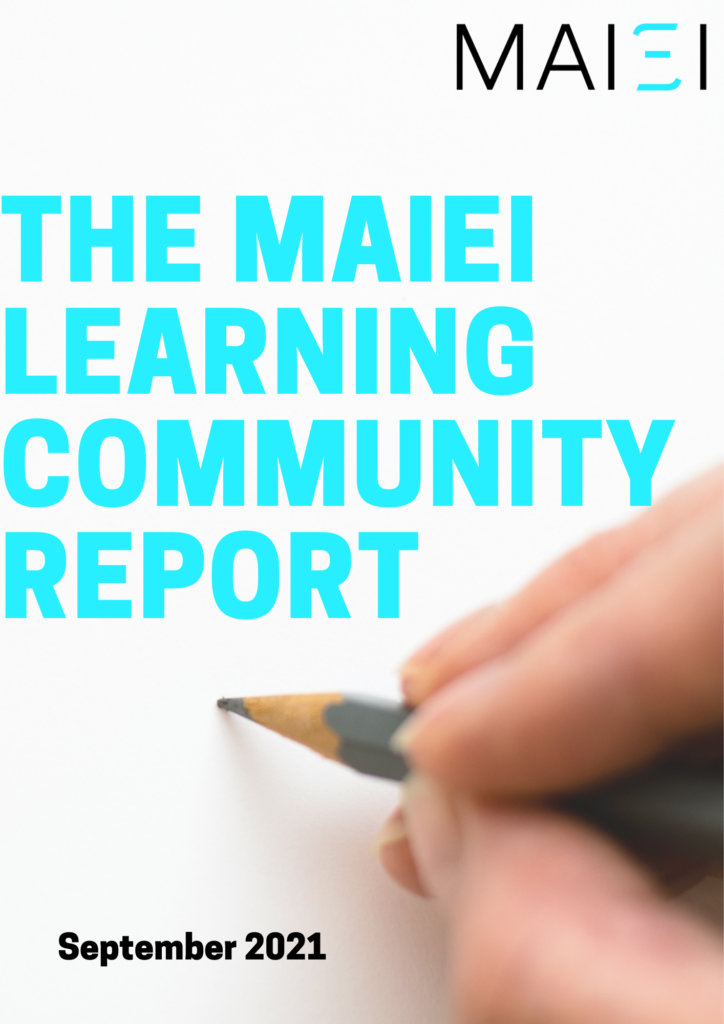
Subscribe to our weekly newsletter for the latest AI ethics research & reporting.

Welcome to this special report from the Montreal AI Ethics Institute!
This is a labor of the Learning Community cohort that was convened by MAIEI in Winter 2021 to work through and discuss important research issues in the field of AI ethics from a multidisciplinary lens. The community came together supported by facilitators from the MAIEI staff to vigorously debate and explore the nuances of issues like bias, privacy, disinformation, accountability, and more especially examining them from the perspective of industry, civil society, academia, and government.
From its inception, the MAIEI LC community sought to combine both learning and communication. Learning was taken in the form of a wide range of topics over the 8-weeks, covering topics like the rise of emotional systems all the way to digital labor. Communication then came in the form of LC participants sharing their thoughts with fellow participants and coordinators. What made this even more noteworthy was sheer interdisciplinarity of the group.
With a wealth of talented applications to choose from in the beginning, the team at MAIEI knew this was going to be an intellectually stimulating and riveting 8-weeks. The backgrounds included ranged from political, to legal and minority expertise. With our participants also spread all over the world, the wealth of diversity in experience and how beneficial this can be to the AI process, was extremely apparent. Whether it be talking about connectivity issues in Mexico or recent issues in Ukraine, we were all able to learn about topics previously unknown to some of us. It was with great sadness that the shared learning space came to an end, but we couldn’t just leave what we learnt confined to the Zoom room. Thus, the MAIEI LC report was born.
The outcome of these discussions is reflected in the report that you are reading now – an exploration of a variety of issues with deep-dive, critical commentary on what has been done, what worked and what didn’t, and what remains to be done so that we can meaningfully move forward in addressing the societal challenges posed by the deployment of AI systems.
The chapters titled
- “Design and Techno-isolationism”,
- “Facebook and the Digital Divide: Perspectives from Myanmar, Mexico, and India”,
- “Future of Work”, and
- “Media & Communications & Ethical Foresight”
will hopefully provide with you novel lenses to explore this domain beyond the usual tropes that are covered in the domain of AI ethics.
The cohort was an absolute delight and the interactions of both the staff and the community brought together a unique, irreplaceable experience that is reflected in the following pages. If you’d like to learn more about such programs, I encourage you to sign up for The AI Ethics Brief.
Enjoy these pages and please do stay in touch!
The contributors:
- Victoria Martín del Campo, Department Chief, Mexico Data Strategy and Digital transformation office.
- Yurii Haidai, Investigator, Business Ombudsman of Ukraine.
- Nanditha Narayanamoorthy, Fourth-year doctoral candidate, Department of Humanities, York University, Toronto, Canada
- Lujain Ibrahim, Schwarzman Scholar, Master’s in Global Affairs, Tsinghua University, Beijing, China.
- Heather von Stackelberg, Writer, instructional designer and educator, intersection of science, technology and society.
- Shreyasha Paudel, independent researcher, ethical and social impact of automation, digitization and data in Nepal
- Sofia Trejo, Professor ,Department of Mathematics, Mexico’s Autonomous Institute of Technology (ITAM)
- Christina Isaicu, Management team, AI4Good Lab
- Wilson Lee, Senior Machine Learning Research Engineer at The Trevor Project
- Mitchel Fleming, Graduate; McGill Faculty of Law, articling student with Bereskin & Parr Toronto.
- Samuel Curtis, AI Policy Researcher & Project Manager at The Future Society.
- Brittany Wills, Software engineer, Twitter’s Machine Learning Ethics, Transparency, and Accountability team.
- Garima Batra, Software engineer and designer, Master’s in Information science University of Toronto.
- Matthew Hutson, Freelance science and technology writer, Contributing Writer, The New Yorker.
- Tiziana Zevallos, Design Researcher at All In.
